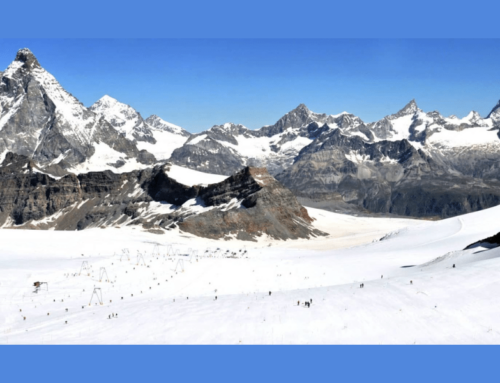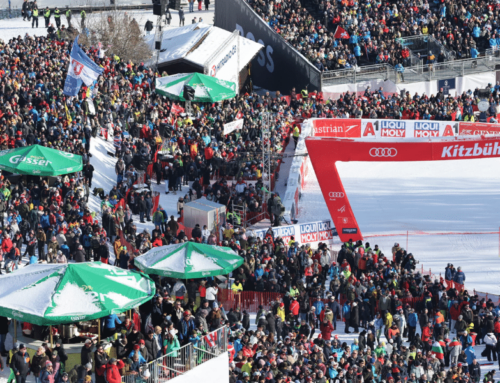A parental advantage?
Parent coaches are an exception but those who fight their way onto the World Cup tour produced countless winners.
The results speak for themselves: Plenty of alpine skiing World Cup champions reach the top with parents as coaches or managers, or both.
Henrik Kristoffersen. Marc Girardelli. Mikaela Shiffrin. Janica and Ivica Kostelic. Marcel Hirscher. Ilka Stuhec, Lindsey Vonn. And on and on.
And yet, parent-coaching success is the exception, not the rule. And, in a series of interviews — more than a dozen — with parents of champions, and with coaches, athletes and others, no one made the case that the parent-coach model is one to follow.
“It’s important,” Lars Kristoffersen, who coaches his son Henrik, the Norwegian tech star, “not to follow anyone. What works for us might not be right for others.”

Parents and star-athlete children are a running storyline, not only in skiing but across the world of sports, particularly individual sports. Sometimes it works and sometimes it does not: The Williams sisters and their driven father. Martina Hingis and her mother who reportedly was set on making her daughter champion from the moment of her birth. Jennifer Capriati, whose father has been called among the worst tennis fathers of all time.
As rule, parent coaches have to elbow their way in, defying sporting convention that dictates parents keep a respectful but supportive distance and let coaches — and national sporting federations — groom and manage athletes.
Yet parent coaches are behind numerous World Cup champions and World Cup records. On the tour they are accepted as part of the traveling crowd, while some are regarded with both awe and suspicion in a sport where every tiny advantage — wax, wisdom, equipment, nerve — makes the difference.

When Ante Kostelic set a complicated off-rhythm second run in both the slalom and the combined slalom at the Sochi Olympics some competitors complained of a whiff of unfairness. Is it right for one of the fathers of a competitor to set a course, even if he is a coach? As it turned out Ante’s son, Ivica, climbed from seventh in the downhill to second overall on the strength of his slalom run in the combined.
Successful parent coaches have a few similarities: They generally have been around the sport since childhood, are usually former top athletes themselves, are confident in the space, know the language, and aren’t intimidated by the male-dominated — some would say sexist — vibe on the tours.
Eileen Shiffrin, who coached and managed her daughter Mikaela from a very young age, predictably faced fierce opposition from U.S. ski team coaches and officials when she and her daughter declared she would be a key member of her team.
“They didn’t want me and that was definitely one of our battles,” Eileen told Ski Racing recently.

It took a few years for Eileen’s role to be accepted by the team. Mikaela was young, 16 when she first podiumed on the World Cup in 2011 and a junior at Burke Mountain Academy. She would keep up with school work in the evenings. Most of the other athletes were older, some almost twice her age.
It’s not hard to understand why Mikaela wanted her mother along. But it was more than that. Eileen was also a key adviser and coach, and had been for some time.
“Mikaela had a pretty good ranking before she even left Burke, so we just wanted to stick with the game plan because it seemed to be working,” Eileen said.
It wasn’t easy. It took persistence.
“I’m not going to lie, I butted heads with coaches,” she said. “It was a very nerve wracking process pretty much the whole way.”
It took a few years — and many World Cup wins — “and finally they got it.”
Eileen stresses that some of the criticism was incorrectly about money. Some people believed she was on the team payroll. She wasn’t. She and her husband either paid her way or her daughter did.
And being a woman didn’t make it any easier, she said, in a sport dominated by male coaches and officials.
“Would I have come up against all that had I been a female?”
Turning more reflective, Shiffrin makes the case that ski-racing culture in the United States often wrongly pushes parents away. Instead, parents should be embraced forcefully by coaches and race programs, she said, and encouraged to be more involved at the early levels of the sport.
“There is a place for parents out there for sure, so much so that USSA doesn’t take enough advantage of parents,” Shiffrin said. “In our country the minute the kid comes of age to ski, at six or seven, we’ve trained our ski clubs to make parents believe there is no place for them on the hill.”
Some western clubs have developed what she calls a more family-friendly culture — she cited ski clubs at the Ikon-pass areas — “more willing to bring parents in” but the general trend is to keep parents at a distance.
Shiffrin, however, also cautioned that her level of involvement was unique to her daughter, their relationship and their circumstances. Among other things, her commitment was encouraged by Burke Mountain Academy coach and headmaster Kirk Dwyer.
“He was unique in doing that, in bringing parents in close, on the hill, in the coaching, in the communication with kids,” she said. “That experience gave me the confidence to go on the tour with Mikaela. But is it for everyone? No, I don’t think so.
“It was always about the skiing and about what Mikaela wanted,” Eileen Shiffrin said about her daughter, words that might as well have been spoken by the elder Kristoffersen.
Lars Kristoffersen, who coached his son, the Norwegian phenom, Henrik, now 25, since he was six years old, has a strikingly similar story.
Lars Kristoffersen is now coach and manager of Henrik’s one-man team, which operates under the Norwegian team umbrella. And as Eileen Shiffrin did, Lars Kristoffersen has to navigate some friction. Because while the arrangement works for the Kristoffersens it is not without its critics, some within the team structure itself, who resent the exclusivity and what is perceived as special treatment for the top tech specialist.
But Lars could not ignore what he believed to be true about his son: as Henrik improved he seemed to benefit from more time alone, often to test gear in the gates, which is crucial and time-consuming.
“As he got better it became increasingly apparent that he benefited from a different kind of program” than what the Norwegian team offered.
The Kristoffersens have a history of butting heads with the Norwegian federation. The racer sued to retain the right to wear a Red Bull logo on his helmet, claiming the sponsorship was a source of important income and training opportunities at Red Bull’s athletic facilities, and arguing that other athletes on the tour are allowed to sport the logo, putting him at an unfair disadvantage. Earlier this year the Norwegian courts ruled against him.
Although Lars believes that Henrik could not be the competitor he is without his unique one-man team structure, he said being a part of the bigger team was key to his son’s earlier successes. Lars is keen to get Henrik training time with younger teammates and Norwegian athletes to pass along his passion and experience. But so far that is not happening. Norwegian team leaders either want Henrik to train with the team all the time, his father said, or not at all.
“There is no willingness to compromise. So we have had to make that sacrifice” of rarely training with the other Norwegian athletes, Lars said.
Asked to explain his fatherly magic — “why does it work?” — between him and his son, Lars said: “There is no possible answer to that question.”
Lars said he is always honest with his son.
“You have to be honest,” which often means he has to be tough. And he tries not to display emotion.
Henrik skied out of the second run at the South Korea Olympics, where he was a contender after finishing second in the giant slalom earlier in the games.
“Of course I feel it inside,” his father said. “But I try not to be emotional. Because that’s the game, that’s the sport. If you don’t try hard, you won’t win. So you stay calm, and you support.”
Perhaps the most legendary parent-child team was Helmut and five-time overall World Cup champion Marc Girardelli.

Helmut “was very strict and always fighting against the people who were against us,” Marc commented in an interview with On the Snow magazine in 2017.
One of their first fights came early on when the Austrian ski federation wanted young, rising-star Marc to attend a national ski academy away from home. Neither Marc nor his parents wanted that for him, so he stayed home and trained nearby, coached by his father.
Then he began beating the kids from the academy, which set up a contentious relationship with the Austrian federation. That endured until the young racer and his father engineered a switch to his racing flag to Luxembourg, a country with little snow and no alpine ski areas.
Known as one of the toughest and unrelenting competitors on the tour, Marc Girardelli was a one-man team, his toughness handed down from his hard-charging, chain-smoking coach who was also his dad. Over 16 seasons he skied onto 101 podiums and 46 wins.
“My dad and I were probably the best kind of coalition you could have,” he said.
At least when it came to ski racing. After Marc’s racing career ended, the relationship cooled amid troubled business dealings. But for a very long time they were inseparable — and at the top.





















